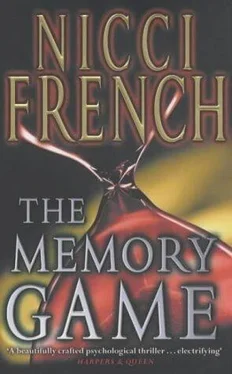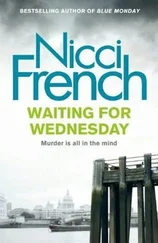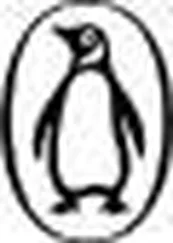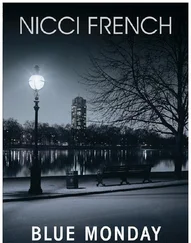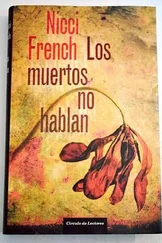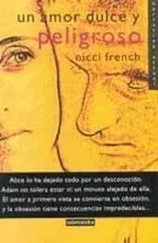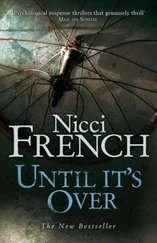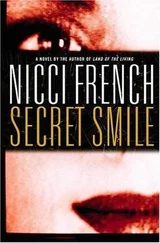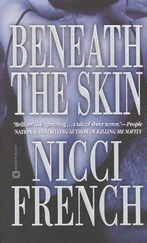Nicci French - The Memory Game
Здесь есть возможность читать онлайн «Nicci French - The Memory Game» весь текст электронной книги совершенно бесплатно (целиком полную версию без сокращений). В некоторых случаях можно слушать аудио, скачать через торрент в формате fb2 и присутствует краткое содержание. Жанр: Триллер, на английском языке. Описание произведения, (предисловие) а так же отзывы посетителей доступны на портале библиотеки ЛибКат.
- Название:The Memory Game
- Автор:
- Жанр:
- Год:неизвестен
- ISBN:нет данных
- Рейтинг книги:4 / 5. Голосов: 1
-
Избранное:Добавить в избранное
- Отзывы:
-
Ваша оценка:
- 80
- 1
- 2
- 3
- 4
- 5
The Memory Game: краткое содержание, описание и аннотация
Предлагаем к чтению аннотацию, описание, краткое содержание или предисловие (зависит от того, что написал сам автор книги «The Memory Game»). Если вы не нашли необходимую информацию о книге — напишите в комментариях, мы постараемся отыскать её.
The Memory Game — читать онлайн бесплатно полную книгу (весь текст) целиком
Ниже представлен текст книги, разбитый по страницам. Система сохранения места последней прочитанной страницы, позволяет с удобством читать онлайн бесплатно книгу «The Memory Game», без необходимости каждый раз заново искать на чём Вы остановились. Поставьте закладку, и сможете в любой момент перейти на страницу, на которой закончили чтение.
Интервал:
Закладка:
‘The friend she was going to spend the day with is ill,’ explained Caspar.
‘I’m glad to see her again,’ I lied. ‘Come this way, Fanny, and I’ll show you an obelisk with a dog’s snout set in it. The dog was called Emperor.’
‘What’s an obelisk?’
‘A pointy thing.’
We wandered off the main gravelled path. Brambles caught at our legs.
‘Have you noticed,’ said Caspar, ‘how many children are buried here. Look, little Samuel aged five here, that’s the same age as Fanny, and there’s a baby of eleven months.’ We stopped at a family gravestone: five names, all under ten. On some neat gravestones there were flowers. Most were overgrown with nettles and ivy; moss sank into the lettering, obscuring it.
‘Look at that,’ I said. A few yards away, through a thicket of trees, a headless angel stood guard over a buried slab. ‘We’ve forgotten how to mourn, haven’t we? How to remember. I’d like a monument like that. But people would say it was kitsch, or morbid.’
Caspar smiled. ‘Morbid? To be planning your funerary sculpture at the age of forty? The thought never entered my head.’
‘I’m forty-one. Look.’
Four dreamy pre-Raphaelite heads clustered mournfully in a circle of stone.
‘Where are the pets buried, Jane?’ Fanny ran back from her detour through a line of toppled graves.
I pointed up the path. ‘There. A bit further on.’
She rushed off, her scarf trailing its fringes behind her.
‘Come here, Jane.’
I made my way through the thickets to where Caspar stood. I walked very slowly. Nothing would ever again be as good as this moment. I stopped a foot away from him and we looked at each other.
‘Plain Jane Crane,’ he said. With one forefinger he traced my lips. Carefully, as if I were precious, he cupped the back of my skull. I took off my gloves, dropped them among the nettles, and slid my hands under his coat, jersey, shirt. He smelt of wood smoke. I could see my face in his eyes, and then he closed his eyes and kissed me. So many layers of clothing; we leant into each other. My body ached.
‘Caspar! Caspar, where are you? Come and see what I’ve found. There you are. Why are you hiding? Jane, Jane you’ve dropped your gloves. Come on. Hurry.’
When I found myself in my remembered world again, the first stones of Cree’s Top hard against the curve of my spine, I felt cold and afraid. As soon as I had mounted my bike and free-wheeled down Swain’s Lane leaving Caspar and Fanny holding hands on the pavement, the kiss in the cemetery had seemed like a dream and I was returning to what was real. The holiday was over and I was going back to school.
Alex and I hardly spoke. We made no eye contact. I lay on the couch and as he spoke the ritualistic few words, I felt the room slip away from me and I was back where I had to be. The surface of the River Col on my left rippled sickeningly, as if it were thick oil rather than flowing water. It moved heavily away round the bend. I stood and turned, shivering a little in my gym shoes and thin cotton dress, black like the one that Natalie had worn so often that summer. The breeze blew it back and it outlined my firm young body, the body I had given to Theo just the day before, caressed and peeled and finally penetrated out in the shadowed woods with the laughing and the music of the party humming in our ears. I had taken my notebook, with my silly girlish fancies and fantasies, and ripped them from the book one by one. Their childish illusions repelled me now and it was with a sense of burnt bridges that I’d screwed them up and tossed them one by one into the water where they’d lost themselves in the broken surface of light and ripples which disguised where air ended and water began. I was a woman now, wasn’t I?
I turned round to face Cree’s Top. A wave of dread flowed through me and I felt giddy, so that my legs would scarcely bear me. The elms on my left swayed and tipped, or it might have been that they were still and I that was swaying. I began to make my way up the narrow and steep path that was familiar and so long lost. I could see the sludgy water of the stream down through the bushes to my right but this time I made an effort not to look anywhere but up the path, this path of my own shuttered mind. Branches brushed against me, snagging my dress, thorns against the flesh of my bare arms and calves, as if I was being held back. I strode through them unheeding. I was now directly on the summit of Cree’s Top, though the visibility was obscured in all directions by the thick gorse bushes that covered it. The peak was very small and after just a few steps I began to descend.
I stopped and listened. Now I knew. Movement was visible through the bushes ahead, glimpses of something. Sounds also, muffled and indistinct. It was there. It was there. Things I had buried in my own mind for a quarter of a century and all I had to do was step forward, through the barriers I had erected for myself. When I opened my eyes and blinked, unseeing at first, at Alex, it was not with the fear of before but with an icy resolve. It was there. But I wasn’t quite ready. Not quite.
Twenty-Six
I woke on the morning of Wednesday 15 February with a sense of imminence. There had been rain for days – the lawn was bloated with it – but the weather was suddenly cold and bright. From my back window the spire and the television mast on Highgate Hill looked unnaturally clear. The everyday objects in my kitchen were different, charged with meaning. My skin prickled. It was as if every object that I looked at was illuminated from behind, its outline accentuated and made harder, more vivid. Myself, too. I felt capable, precise. I needed to do things.
I had shopped the day before and was partly prepared. On the table I placed my heavy scales and weights, a bag of wholemeal flour and a bag of strong white flour, small polythene bags of pumpkin seeds, sunflower seeds and sesame seeds, yeast like soft modelling clay, sea salt, vitamin C powder in an orange medicinal pot, a plastic bottle of grapeseed oil, a bag of hard, thick muscovado sugar. This was a process I could go through in subconscious bliss. The yeast awoke with jewelled bubbles. I forked the salt into the sandy wholemeal flour, then added everything else with the beery puddle of yeast. I smoked cigarettes in the garden for half an hour, not thinking of anything, then returned and mashed and kneaded the two large patties of dough, leaning on the heels of my hands, folding and folding. Cut, rolled, pushed into four tins. of ring binders and the clatter of filing cabinets. We were now only a day or two from achieving perfect order, like Pompeii. It would be almost a pity to disturb the taxonomic perfection with any new work.
Duncan was engrossed with the technicalities of the espresso machine, one of our major capital expenditures in the boom days of the late eighties. He brought me over a thimbleful of coffee which gave me an almost instantaneous jolt of caffeine as I despatched it in a single, tiny gulp. He told me of his new scheme which he was discussing with the council for putting homeless families (‘homilies’ he camply called them) into derelict houses and enabling them to restore the buildings themselves. I nodded with enthusiasm. It was extremely cost-effective (except for us), practical, socially beneficial, had little to do with architecture in any traditional sense, and was almost certain to be rejected out of hand by the housing department. An ideal CFM project. Then we moved on to my hostel.
‘I read about the torchlight procession of local residents in the local paper,’ Duncan said. ‘Your allaying of the anxieties of the community obviously wasn’t a total success. Does that mean that the hostel scheme has been abandoned?’
Читать дальшеИнтервал:
Закладка:
Похожие книги на «The Memory Game»
Представляем Вашему вниманию похожие книги на «The Memory Game» списком для выбора. Мы отобрали схожую по названию и смыслу литературу в надежде предоставить читателям больше вариантов отыскать новые, интересные, ещё непрочитанные произведения.
Обсуждение, отзывы о книге «The Memory Game» и просто собственные мнения читателей. Оставьте ваши комментарии, напишите, что Вы думаете о произведении, его смысле или главных героях. Укажите что конкретно понравилось, а что нет, и почему Вы так считаете.
